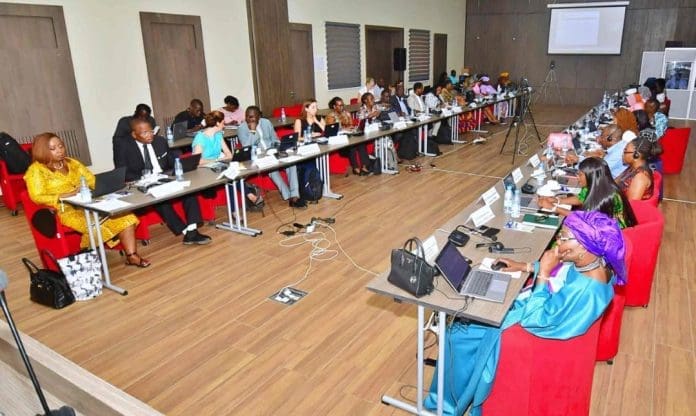Under the theme “From Advocacy to Action,” a regional capacity-building workshop dedicated to combating gender-based violence (GBV) and sexual harassment was held from the 22nd to the 26th of September 2025 in Saly Portudal, Senegal.
The meeting brought together legal, health, and social experts from eight member countries of the Sub-Saharan Women’s Empowerment and Demographic Dividend Project (SWEDD+) and the SWEDD Project: Benin, Cameroon, Côte d’Ivoire, Gambia, Guinea, Mauritania, Senegal, and Chad.
The event was organised by the Department of Human Development and Social Affairs (DDHAS) of the Economic Community of West African States (ECOWAS) Commission, through the ECOWAS Gender Development Centre (EGDC), in collaboration with the West African Health Organisation (WAHO), the United Nations Population Fund (UNFPA), and with financial support from the World Bank.
One in three women worldwide still suffers physical or sexual violence. In West and Central Africa, millions of girls remain exposed to harmful practices such as early marriage and female genital mutilation, compromising their health, education, and future.
While several countries already have laws and strategies in place to combat these scourges, their implementation often remains limited. This workshop provided a forum for discussion to identify persistent challenges, share good practices, and propose concrete solutions to transform legal texts into effective tools for protection and justice.
The SWEDD+ project, funded by the World Bank and implemented with technical support from UNFPA, WAHO, and DDHAS/ECOWAS, supports partner countries in strengthening their legislative and policy frameworks to better protect survivors of violence and promote gender equality.
During the meeting, participants shared their national experiences, identified legal gaps, and developed a joint roadmap to improve the prevention, management, and response to gender based violence.
Discussions focused on eliminating child marriage and female genital mutilation, combating femicide and digital violence, and establishing legal frameworks centred on survivors, ensuring better protection and effective access to justice.
Since its launch in 2015, the SWEDD project, and subsequently its extension SWEDD+, have established themselves as key instruments for placing the rights of women and girls at the heart of regional development priorities.
By bringing together the efforts of governments, regional institutions, and technical partners, ECOWAS reaffirms its commitment to building an inclusive, equitable West Africa free from violence against women and girls.
Source: newsghana.com.gh











